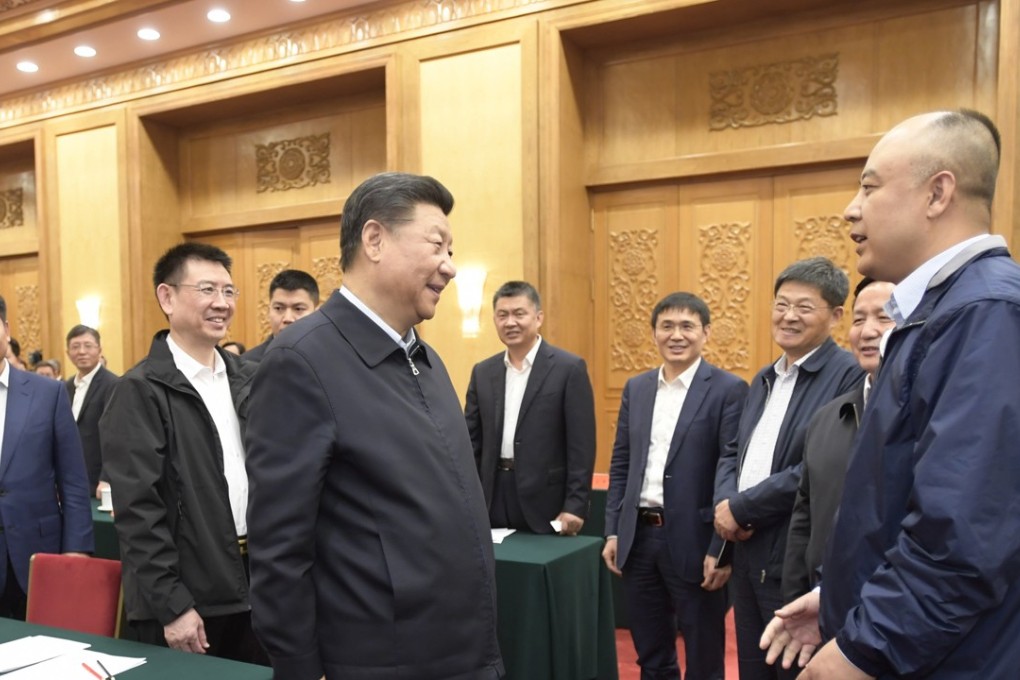The guest list giving a glimpse of Xi Jinping’s thinking about China’s economic future
- Xi prefers hi-tech firms and manufacturers than property developers
- Xi in particular values private businesses in cutting-edge technologies

The guest list of private entrepreneurs who attended a landmark “symposium” chaired by Chinese President Xi Jinping on Thursday sheds light on the Chinese leader’s preferences for businesses, reflecting his thinking about the country’s future.
A total number of 52 private entrepreneurs were invited to the meeting on Thursday, according to a full guest list seen by the South China Morning Post, with 13 government ministers also in attendance.
It is the first time since Xi came to power that he had gathered his top economic policymakers and people from private business community in the same room.
The entrepreneurs are not necessarily super rich – although Pony Ma of Tencent, Robin Li of Baidu and Lei Jun of Xiaomi were among them. They are also not necessarily those who have constantly pledged loyalty to the Communist Party, as many of them are not members of the National People’s Congress or the Chinese People’s Political Consultative Conference.
Watch: As trade was continues, Trump and Xi have ‘good’ phone call
The 10 private entrepreneurs chosen to speak at the meeting were all relatively unknown business owners from the general public.